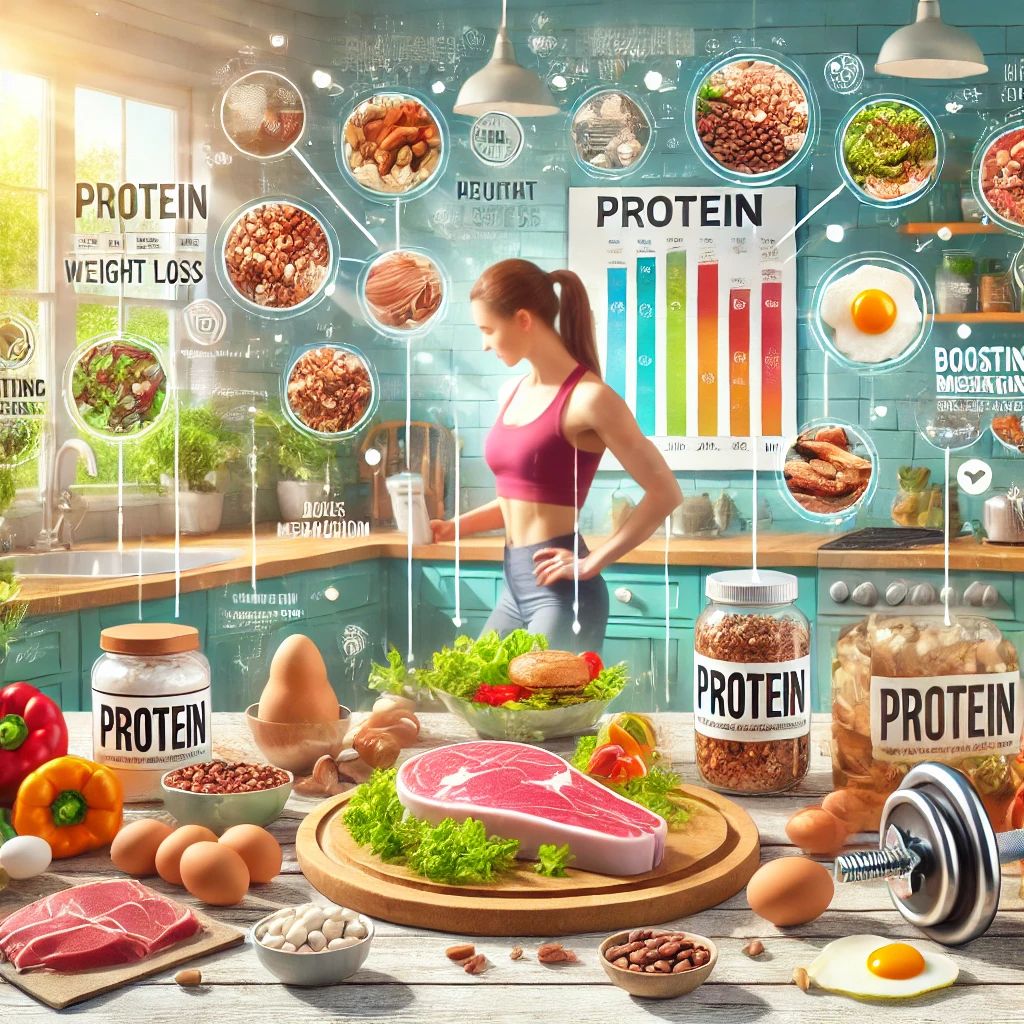
In the ever-evolving landscape of weight loss strategies, one nutrient consistently stands out for its significant impact: protein. Often hailed as the cornerstone of a healthy diet, protein plays a crucial role in weight loss and overall fitness. Understanding how protein influences weight loss can empower you to make informed dietary choices that support your health goals. Let's dive into the fascinating world of protein and its role in your weight loss journey.
Understanding Protein
Protein is a macronutrient composed of amino acids, which are the building blocks of our bodies. It is essential for repairing tissues, building muscle, producing enzymes and hormones, and supporting immune function. Unlike fats and carbohydrates, our bodies do not store protein, making it necessary to consume adequate amounts daily.
1. Protein and Satiety
One of the most compelling benefits of protein for weight loss is its ability to promote satiety. Satiety refers to the feeling of fullness and satisfaction after eating, which can help control appetite and reduce overall calorie intake.
2. Protein and Metabolism
Protein has a high thermic effect, meaning that the body burns more calories digesting protein than it does digesting fats or carbohydrates. This thermic effect can slightly boost your metabolism, aiding in weight loss.
3. Protein and Muscle Building
Strength training combined with a high-protein diet is a powerful duo for weight loss. Building and maintaining muscle mass is essential because muscles are metabolically active tissues that burn calories even at rest.
4. Sources of Protein
Incorporating a variety of protein sources into your diet can ensure you get all the essential amino acids your body needs. Here are some excellent sources of protein:
5. How Much Protein Do You Need?
The amount of protein you need depends on various factors, including your age, sex, weight, and activity level. For those aiming for weight loss and muscle maintenance, a higher protein intake may be beneficial.
6. Practical Tips for Increasing Protein Intake
Incorporating more protein into your diet doesn't have to be complicated. Here are some practical tips to help you boost your protein intake:
Conclusion
Protein is an essential nutrient that plays a pivotal role in weight loss and overall health. By promoting satiety, boosting metabolism, and supporting muscle maintenance, protein helps you achieve and sustain your weight loss goals. Embrace the power of protein by incorporating a variety of sources into your diet and aligning your intake with your fitness regimen. With mindful planning and dedication, protein can be a game-changer on your journey to a healthier, fitter you. Remember, the key to successful weight loss is a balanced approach that combines nutrition, exercise, and a positive mindset.


